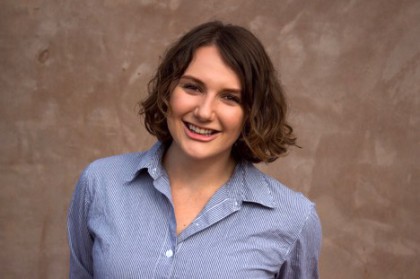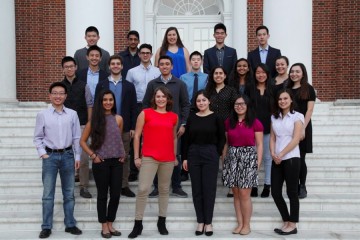The alarm went off at 5 a.m. sharp. I pulled myself out of bed, brewed some tea, and quickly caught up on missed messages from the night before. At 7 a.m. I was in the gym and made sure to spend no more than an hour at the squat rack so I could be fed, dressed, and to the office by 9. I worked until noon, took an hour for lunch, and then swung between individual work and meetings until 7 p.m. when it was time to head home.

Image caption: Pava LaPere
Except I was already home.
The office was my apartment desk, the time clock was my calendar, and I was taking virtual meetings wearing a suit jacket and Pillsbury Doughboy sweatpants.
I had been working for myself since school ended, save for a four-day trip to Myrtle Beach. Waiting for me back in Baltimore was my Frankenstein of summer responsibilities: fundraising for my non-profit, launching an early stage startup, helping my professor write a textbook, and working on contract for various other startups.
At first, a freelance summer seemed like a dream. I could sleep when I wanted, go where I wanted, and sing loudly at arbitrary intervals. Then, I realized I had spent an entire week doing a total of 25 hours of work and 55 hours of exercising, reading, cooking, and writing.
During the semester, I'm a professional responsibility juggler, as classes force me to spend every free moment on my entrepreneurial pursuits. But over the summer, the opportunity cost of wasting time is much, much lower.
I spent nearly the entirety of June psychographically profiling and emailing potential donors, to little effect. It wasn't until a chance call with one of my board members that I learned this was a poor strategy.
Unlike a traditional internship, there isn't anyone to tell me what I should be working on, nor is there someone to tell me when I'm wasting time.
Choosing to be my own boss meant forgoing fancy internships, an experience in a new city, and probably much larger summer earnings. But it also meant that I got giant blocks of uninterrupted time to work on my ventures, which is much more valuable currency for an entrepreneur.
In the end, I even got a semblance of a 9 to 5 schedule going, so it looks like I didn't miss out on too much after all.
About the author
Pava LaPere is a member of the Johns Hopkins Class of 2019. She is a computer science major and entrepreneurship and management minor. LaPere serves as the president of the executive committee for TCO Labs, a non-profit organization focused on fostering the entrepreneurial community on the Johns Hopkins University Homewood campus. She has also been spending this summer completing freelance work from home for startups.
Have a story to share as part of the Hub's Summer Gigs series? Email Taylor Jade Powell to pitch your idea.
Posted in Student Life
Tagged entrepreneurship, internships, startups









